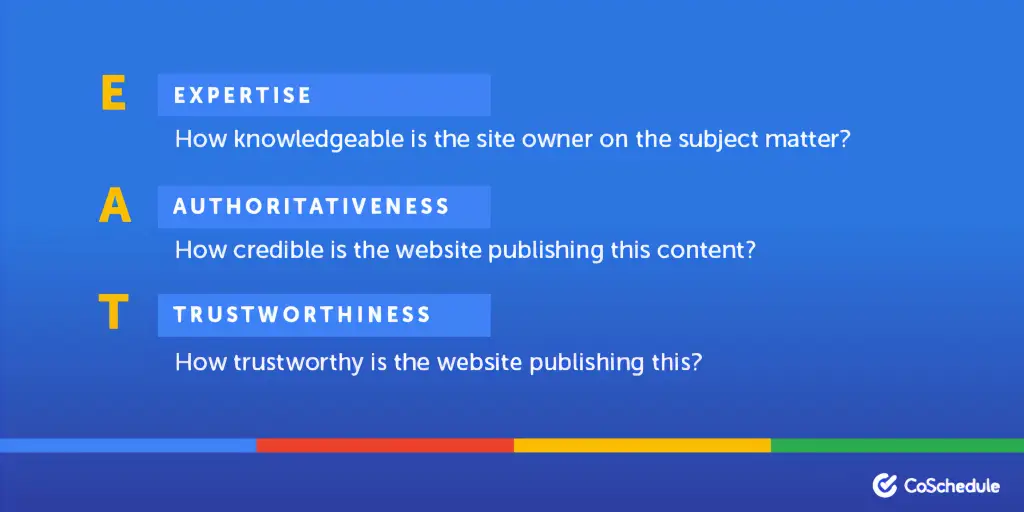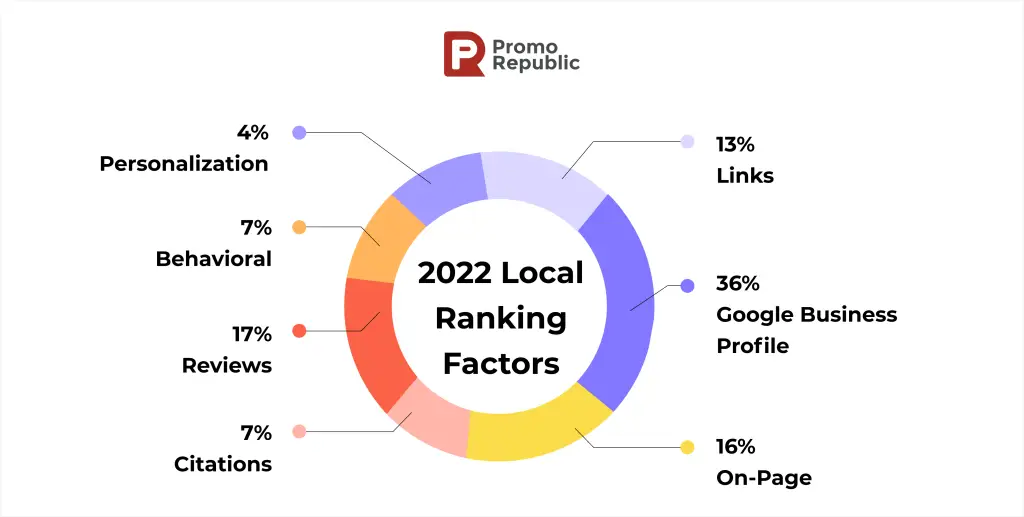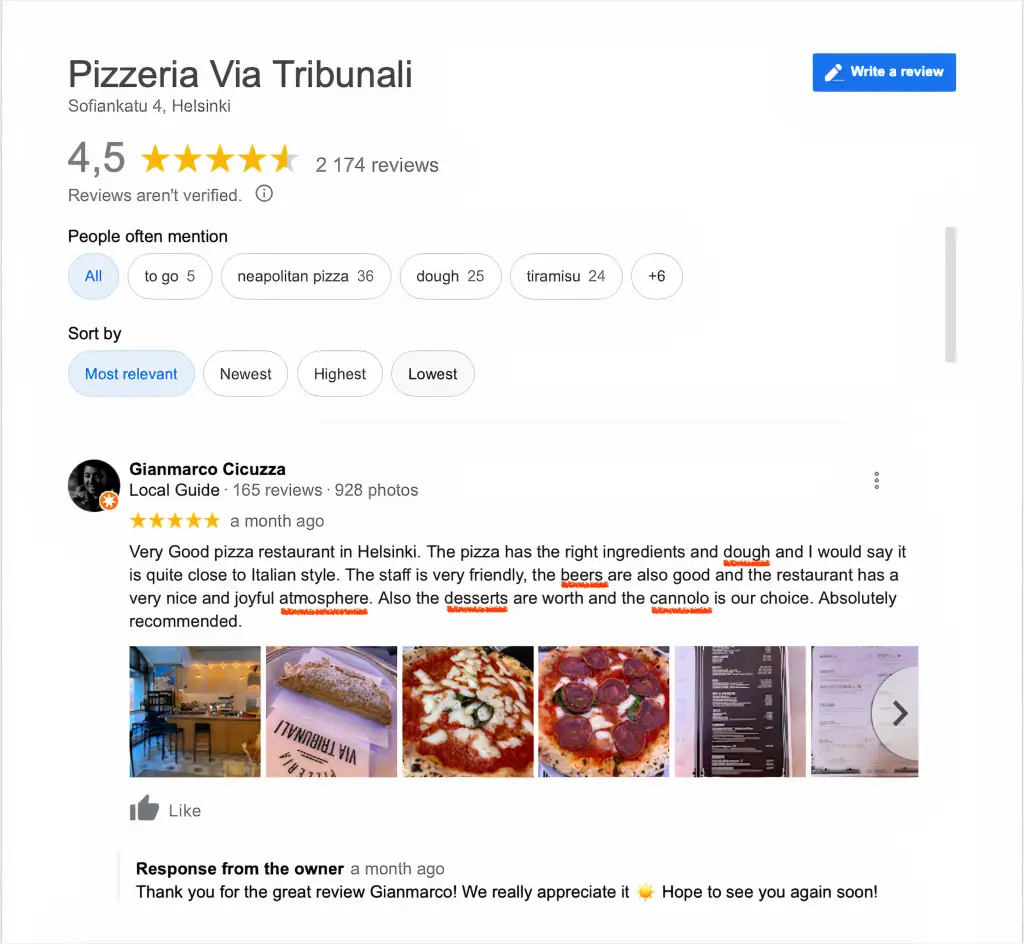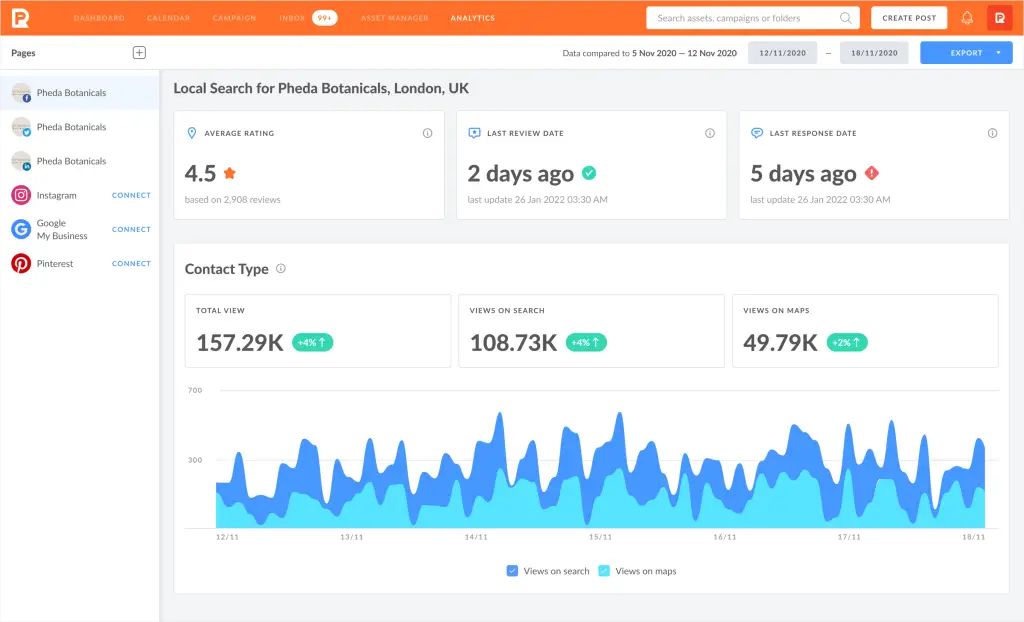Does Responding to Google Reviews Help with SEO?

Content Marketing Manager
Search engine optimization (SEO) is an essential component of a digital marketing strategy that businesses use to increase their positions in organic search results. The higher your website or listing appears in search results, the more visibility, traffic, and visits you’re likely to get.
To build a local SEO strategy and climb to the cherished first page of Google search results, companies optimize their websites, listings such as Google Business Profile (GBP), Yelp, Apple Maps, and social media marketing.
For multi-location businesses, in particular, setting up a local SEO strategy can make a big difference. If you want to become the go-to service provider in town, you must aim to get not only to the top of Google search rankings but also to local 3-pack. But with so many directories to manage and ranking factors to consider, one commonly overlooked element that holds incredible value for SEO is reviews.
However, when a company takes the time to thank happy customers, apologize to unsatisfied clients, and attempt to fix their problems, they’re viewed as customer-centric and trustworthy. And this positive attitude is essential for their online reputation management and – guess what? – rankings. Exactly! Let’s see how it works.
Do Google Reviews Help SEO?
When Google assesses a website, it measures what is called E-A-T: Expertise, Authority, and Trust. It’s not an update or an algorithm. It’s a principle.
Reviews play a crucial role in measuring that “T” in E-A-T. It works when a real customer leaves a review. Google perceives it as a reliability signal and gives a business a bump up.
That’s the foundation. Now we move to the 3 ranking pillars that impact local search results.
The 3 Major Local Ranking Factors
Relevance identifies how closely the query matches information about a local business. For relevance, the question is, “How relevant is this search term to my business?” And the answer is taken from business GBP listing data. So the best way to ensure that you’re in the game is to have a really strong GBP setup.
Proximity is what really defines the local algorithm. It utilizes a user’s location to choose the business that matches their query best. The closer a user is to a local business, the more likely it is that that business will appear in the local pack. The customer’s location is the only factor businesses can’t influence.
Prominence determines how popular a local business is offline. This factor is based on experiences real people have had with a business. And how do people usually express their good or bad experiences? They write online reviews! And Google bots read all this customer feedback and algorithms decide if a business is worth recommending.
On top of that, studies prove that Google reviews play a tremendous role in organic search ranking. Among 130+ factors that impact Google ranking, review signals are the second most important, growing in importance 5 years in a row.
Why are Google reviews important for SEO?
People search online before making in-store purchases. 74% of in-store shoppers said they searched for the closest store near them, locations, hours, directions, or contact information. All this data can be pulled from your Google Business Profile.
Consumers’ use of Google to evaluate local businesses has leapt from 63% in 2020 to 81% in 2021. People compare rankings and reviews to make more informed decisions. The percentage of people ‘never’ reading reviews has fallen from 13% to just 2% in two years. That means that 98% of people at least ‘occasionally’ read online reviews before buying from local businesses.
Like every other modern business, Google focuses on its customers’ needs. So, as long as people consider other customers’ reviews important, Google will keep them among the top ranking factors when crawling web pages to capture more information on the products and services you offer. That’s how a search engine ensures its search results are relevant and satisfactory for searchers. But how much influence do reviews have on SEO?
Reviews tell Google what your website is about. Having rich, detailed descriptions on all of your pages is one of the basic principles of SEO. Online reviews do the same thing. Not only do your Google reviews let the robots know what your site’s all about, but your customers can even fill in gaps that your website’s content may have missed. Google also evaluates customer review volume, recency, and diversity metrics when recommending businesses to the searcher.
Moz released a piece on what makes good SEO for local restaurants for those interested. They observed that eateries with less than 100 reviews had only a 1% chance of making it into the local 3-pack in the 50 major cities studied. Thus, customer opinions of all kinds are a powerful force that can improve your SEO efforts.
Good customer ratings drive more traffic. For many people who search online, reviews mean everything. Eventually, 57% of consumers will only use a business with 4 stars or more. If they see a solid star rating with lots of detailed reviews, they’re more likely to trust and click on your website. This added traffic signals to Google that your website is authoritative and thus worthy of a strong search ranking.
Local reviews build trust. Google trusts what other people say about you much more than what you say about yourself. Sure, you can put “Best massage in town” on your website — but when customers read the same opinion from people who dealt with your business, that counts much more in Google’s eyes. Such social proof transforms into greater visibility.
3 Reasons Why Responding to Google Reviews Helps with SEO
Okay, so we know that Google reviews are invaluable for SEO. Additionally, by putting effort into responding to those reviews, your business will get even better SEO results and customer trust. But why do reviews influence rankings? Why does Google care?
Review responses build trust with Google.
Responding to reviews does more than build trust with your audience: it builds trust with Google, too. When a customer writes an online review, whether good or bad, it tells Google that real people have interacted with a particular business. In turn, your responses prove to Google that your business is active, which is favorable for your SEO strategy and search ranking.
Google picks up keywords in your response.
Google essentially “reads” the reviews and keywords to better learn what the business does, aiming to determine its relevance to a specific user search. So if you’re a massage studio, and your 5-star reviews talk a lot about back pain relief, this should benefit your rankings for back-pain related searches in your area.
Another example: if your customer Peter gives you a great review after going to your massage studio, you can respond by saying, “Hi Peter, we’re glad that we could help alleviate your back pain. Our Harmony Studio Austin team appreciates your feedback!” Inserting a specific service or a company name with a location helps the algorithm show your listing to other potential customers looking for a similar experience. You can find more positive review response examples here and improve your review response rate.
Engagement signals increase Google’s rankings.
How much people engage with your Google Business Profile also affects your rankings. This includes swiping pictures, requesting directions, visiting your website, asking questions, and, of course, reading reviews.The amount of time a searcher spends looking at your listing is an indicator to Google. Obviously, if you have hundreds of reviews to filter through, this increases the possible time a user spends on your page, increasing your rankings. Needless to say, descriptive business responses prolong users’ engagement.
The Bottom Line
Local businesses that want more traffic from searches must improve their local rankings. This is where SEO can help. Companies improve their websites, listings, and social media pages to increase visibility but often overlook online reviews.
Studies have proven the effect reviews have on SEO, and Google has admitted the connection too. This is no surprise, as Google wants to show only the best companies to their users, and reviews are a reasonable differentiator. Google likes it when you interact positively with your customers and rewards your business with visibility.
Responding to all customer feedback online is an effective and cost-efficient way to improve your search rankings, especially if you’ve fallen behind your competitors.
When your review generation and management strategy is set up, it’s time to track your review performance. Try PromoRepublic, the best local marketing tool to uncover growth opportunities for locations and manage local SEO, listings, reviews, and social media posting and ads all in one place. Book a demo to see it in action.









